A southwest Ohio city works to make homeless people unwelcome
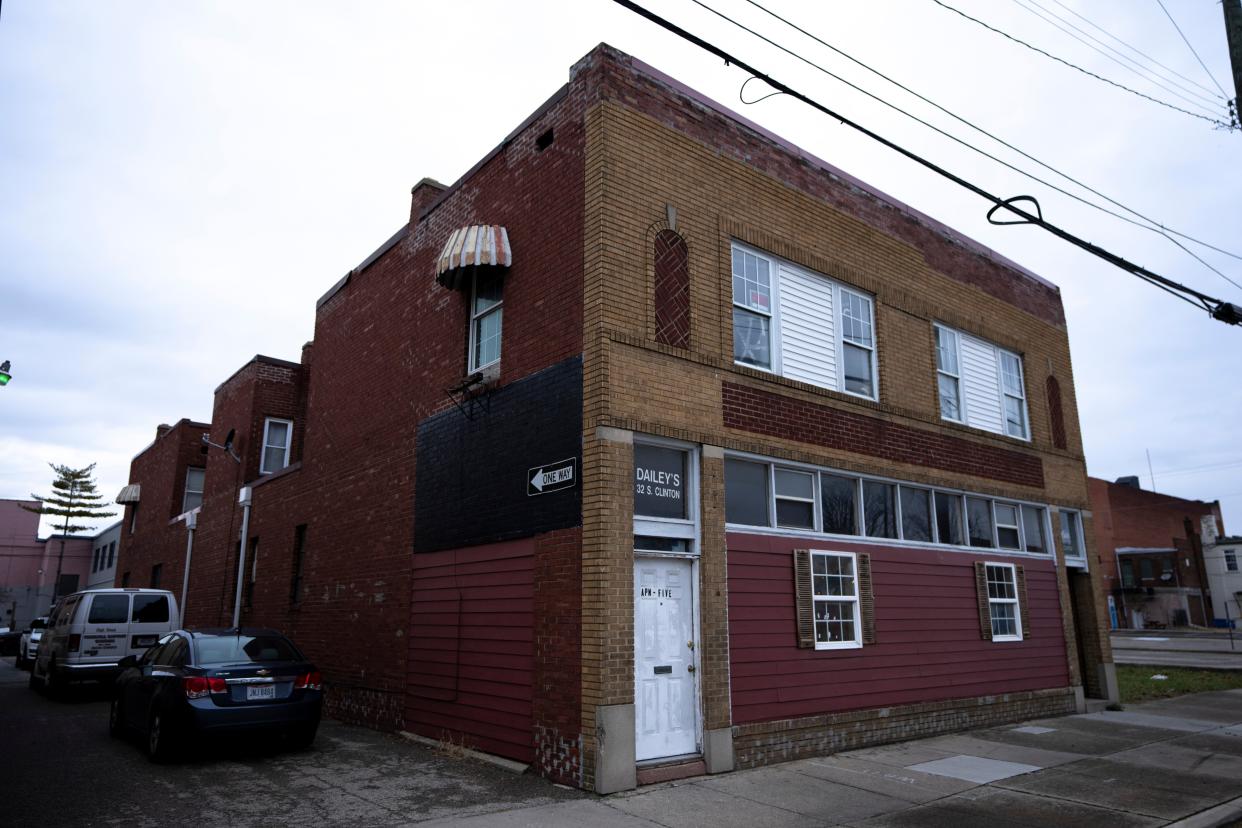
MIDDLETOWN, Ohio – This Ohio city has a message for homeless people: You are not welcome here.
In Middletown, a city of 51,000 north of Cincinnati, officials opposed the expansion of a center that treats homeless people struggling with addiction.
The city created a "homeless crisis team," which included the assistant city manager and police chief, to sweep the downtown and arrest people without housing. Over six weeks, the team arrested 94 people.
“We don't want to make this a comfortable place for them to live. Get them off the streets to where they can't live by their rules," City Councilmember Zack Ferrell said in a Facebook comment to a resident.
City leaders across the U.S. have attempted a variety of measures to deal with people without housing on their streets: Los Angeles declared a state of emergency and plans to get over 17,000 people into housing this year; New York City officials are now authorized to involuntarily commit people; Cincinnati cleared encampments.
In Columbus, efforts to combat homelessness are led by the Community Shelter Board. The nonprofit helps about 15,000 people each year find shelter and permanent supportive housing.
Few experts on the topic recommend Middletown's approach, saying it's ineffective and, in the long run, more costly. Formerly homeless people interviewed by The Enquirer said recovery housing rather than time in jail was crucial for them to become self-sufficient residents of Middletown.
Ferrell told The Enquirer he believes the Middletown's efforts to sweep downtown have had a "major impact."
"On almost an everyday basis right now, I have citizens reaching out to me, telling me they feel more safe and comfortable to walk their animals or walk to different downtown businesses," he said.
What does homelessness look like in Middletown?
Middletown City Councilmember and former police chief Rodney Muterspaw announced a meeting on Facebook for the community to discuss homelessness in the city in October. In the post, he referenced a fire at an abandoned paper mill in 2020 that started because a homeless man was sleeping inside and built a fire to stay warm.
"As you know, the Middletown Paperboard cost about $3 million to clean up due to a fire due to someone sleeping in there. This increased & continued issue with additional problems is why we are having a meeting for concerned citizens," he said in the post. "Our resources and community patience have been drained."
Muterspaw did not respond to The Enquirer's phone calls and email requesting comment.
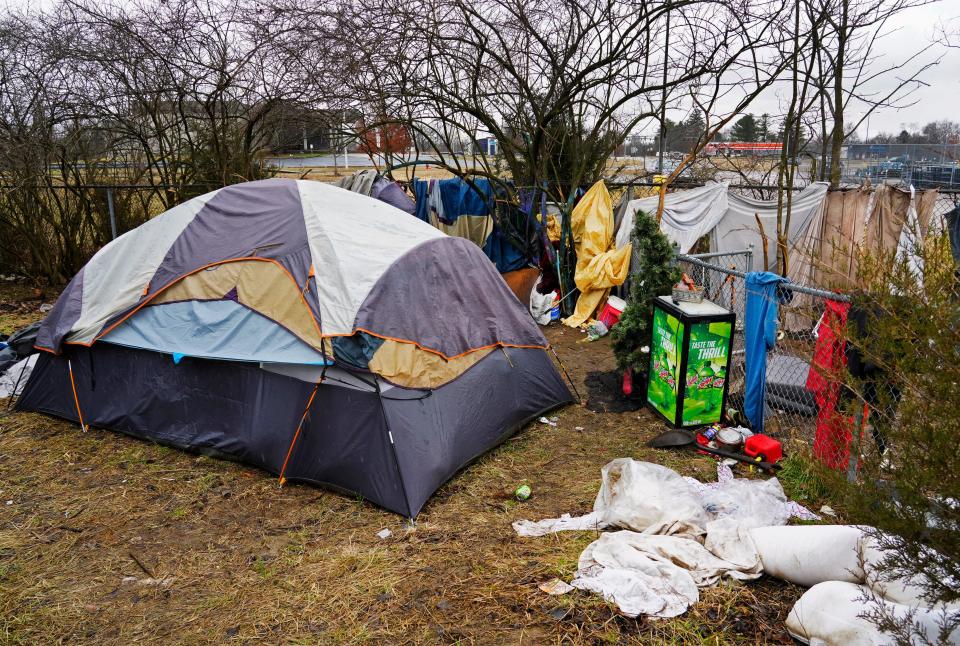
After the October community meeting, City Manager Paul Lolli sent an email to the city council and said he was “essentially going into disaster operation mode."
Lolli assembled a "homeless crisis team" and created a six-week plan to sweep Middletown's downtown. He said during that six weeks, they took 20 people to treatment centers, transported four people out of the city to stay with family or friends and arrested 94 people for charges including trespassing, public indecency, intoxication, panhandling, possession of drug abuse instruments and obstructing official business.
“We will identify ways and means to reduce the homeless effect in Middletown and reduce the number of such individuals here! We won’t solve the homeless issue; but we will run this City not the other way around,” Lolli said in the email.
Middletown Communications Manager Missy Knight said the crisis team continues to operate.
"[Those arrested] may be given a fine and may be given time served, it just depends. Each and every one of them is given the opportunity for resources, whatever that may be. If they need help with drug addiction, they're given those resources. If they need help, finding a permanent home, they're given those resources," she said.
What the experts say
The U.S. Interagency Council on Homelessness recommends against laws that criminalize people for doing daily survival activities such as sleeping, eating or sitting in public.
Research by Dennis Culhane, a social science professor at the University of Pennsylvania who studies homelessness, show that repeatedly arresting homeless people can cost local governments more money than finding housing and other resources for the same number of people.
Community response teams can be effective, according to the Urban Institute, a nonprofit research organization that focuses on upward mobility. The Urban Institute found that the response team in Eugene, Oregon, which dispatches medical and mental health crisis workers rather than police officers, saved the police department an average of $8.5 million a year from 2014 to 2017.
Sara Loken, a spokesperson for the Community Shelter Board, said Columbus and Franklin County have found success in supportive housing.
"These programs provide wraparound services at a very efficient cost ― $6,200 per year, which is only $17 per day," Loken said. "Supportive housing is a highly effective intervention to end long-term and chronic homelessness, and it reduces costs that would otherwise be incurred by other community systems, like jails and hospitals. Community Shelter Board’s system of care currently manages more than 2,400 units of supportive housing in our community for people experiencing chronic homelessness."
Ferrell, the Middletown councilmember, told The Enquirer he believes the city needs to take a "proactive rather than reactive response" to homelessness. He said it's not that Middletown doesn't care about homeless people, but he's concerned the financial strain could bankrupt the city.
Local officials have repeatedly said the majority of homeless people in Middletown are sent to the city from other nearby municipalities. They have not provided any data to support that. Knight said that's what the crisis team found by speaking to homeless people in Middletown.
"I think a large majority of our citizens feel like they're being held hostage right now by a small demographic of people that are largely not from this area. We as city council are elected to protect our citizens," Ferrell told The Enquirer.
The Enquirer spoke to the directors of a shelter and addiction treatment center in Middletown to ask about possible solutions and see if they could confirm whether the people they serve are from Middletown.
Tim Williams, vice president of homeless services for City Gospel Mission, oversees two Hope House shelters in Middletown, one for men and one for women and children. He said he's seen hospitals send people to Middletown in the past, but said that wasn't the norm at Hope House shelters. He deferred to the police chief as "the one that has boots on the ground" on whether the majority of homeless people in Middletown are from the city.
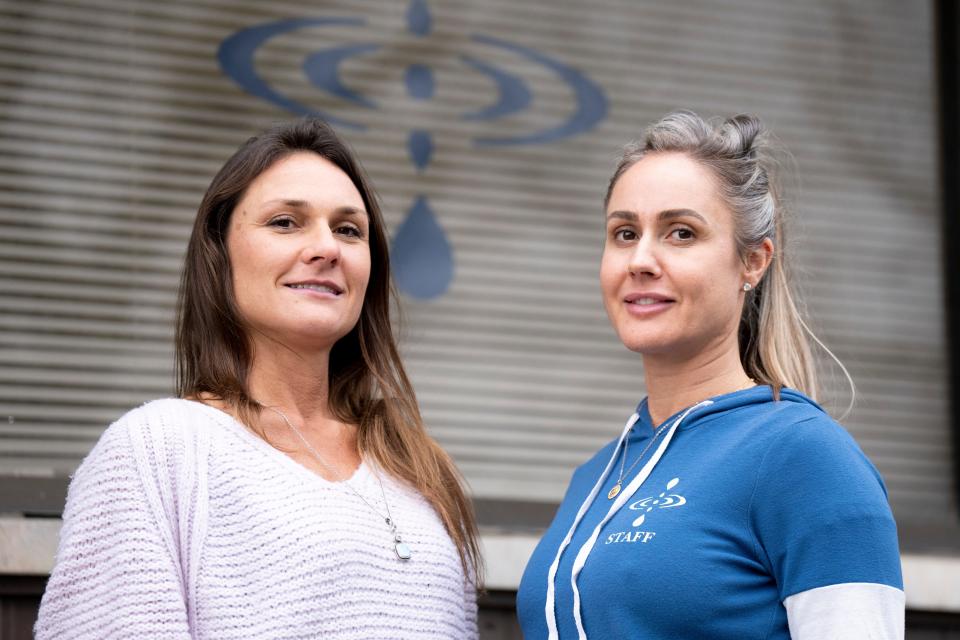
Erica Norton and her sister Jessica Henize Clarke run the Mindful Healing Center in Middletown, an addiction treatment center that also assists its clients with finding housing.
Norton said in her experience most of the people they serve are from Middletown. She told The Enquirer that some want to leave because the city holds bad memories for them and some want to stay because they've lived in Middletown their whole lives.
The Enquirer spoke to two people who graduated from the Mindful Healing Center's treatment program about their experiences with homelessness and how they feel about Middletown's approach.
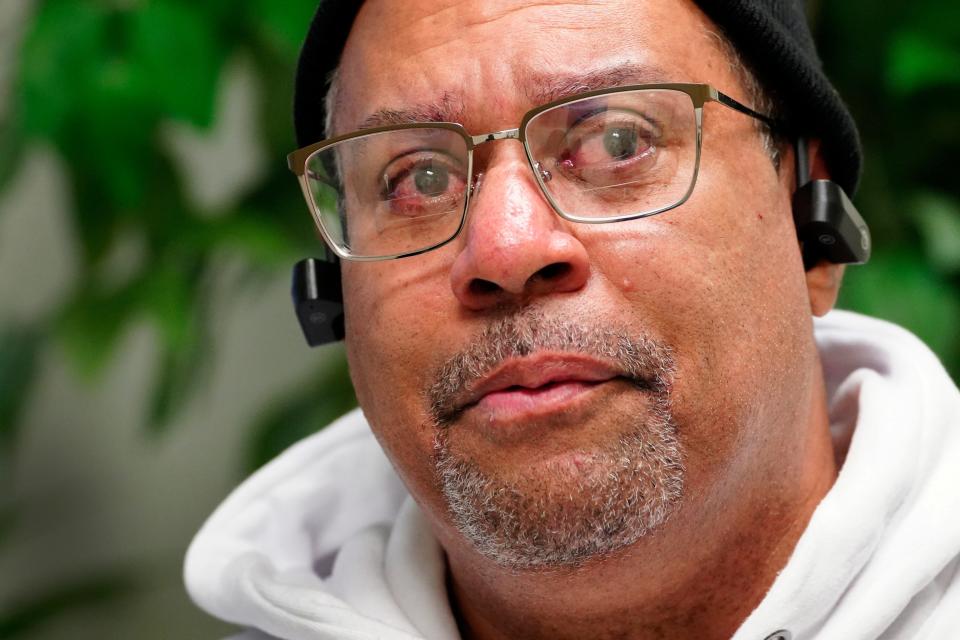
Daryl Jackson, 63, is originally from Cincinnati. He spent time sleeping under a bridge by Reading Road and in housing on the West Side before he went to the Center for Addiction Treatment. The center was full so employees there connected him to Middletown.
"I like Middletown. It's slower than Cincinnati," he said.
Jackson graduated from the Mindful Healing Center program in eight months and now lives in senior living apartments in Middletown. His next goal is to go back to school.
"I think every city is responsible for taking care of the homeless," he said.
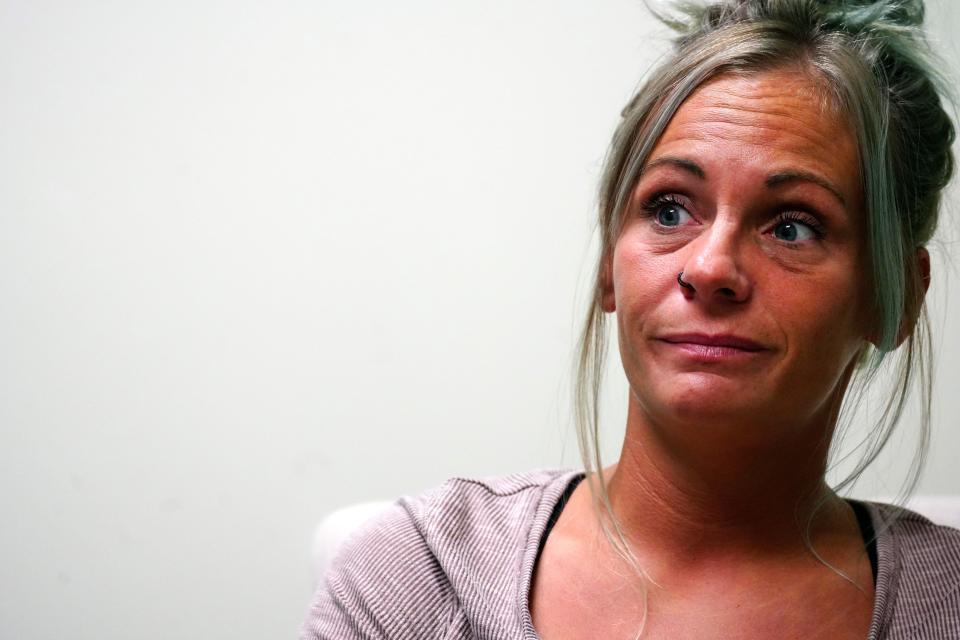
Jess Pew, 36, grew up in Michigan and moved to Lebanon five years ago. She told The Enquirer she struggled with abusing prescription medication and was kicked out of her house in 2019. She spent a few days on the street in Lebanon before she came to the Mindful Healing Center.
Pew suffered a relapse and went to another treatment program in California before returning to the Mindful Healing Center in 2021. This time she graduated from the program in seven months. She now lives in Middletown, works part-time rehabilitating houses and cares for her six-month-old son.
"I wasn't from Middletown. I came here to get treatment that saved my life and now I'm a productive member of society here in Middletown," Pew said.
Both she and Jackson said counseling and recovery housing was crucial for their recovery.
“I don’t know why you would be against something that’s helping the community and has saved more than one life. Why wouldn’t you want that as an option?” Pew said of the city's position.
What could Middletown try?
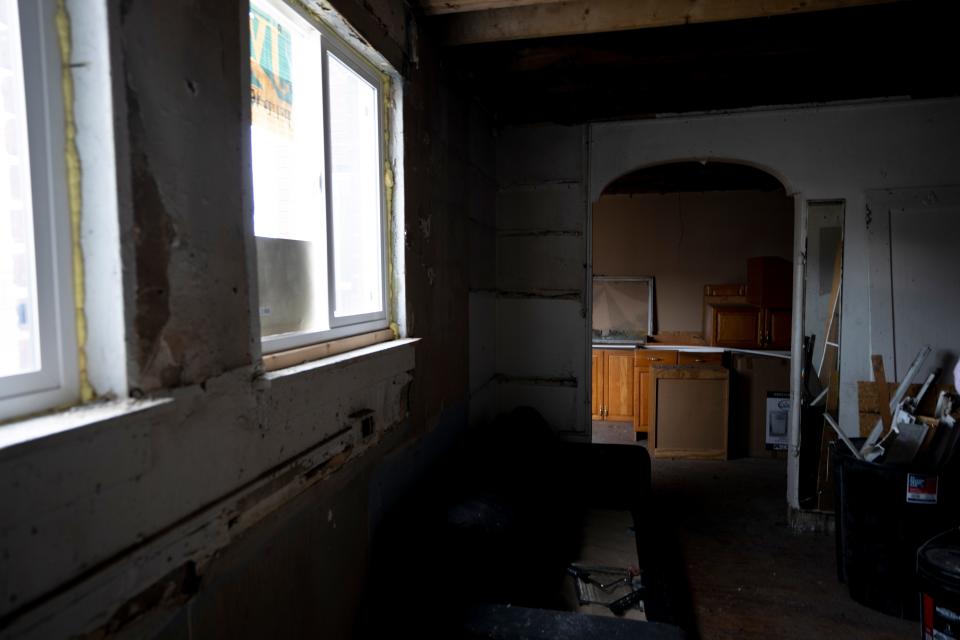
From 2002 until 2020, SHALOM, a network of local churches, provided meals and shelter to homeless people in Middletown on a rotating basis. The program stopped in 2020 because of the COVID-19 pandemic but resumed operation on January 8.
Williams and Norton both told The Enquirer the city needs recovery housing for people to continue to get support as they transition out of a shelter.
“I think the city – they want to help and be proactive, but they're looking for long-term solutions. Not just housing people overnight, but really discovering 'What's going on? What's caused you to become homeless?'" Williams said.
Norton said after people get out of a 30- or 60-day addiction treatment program, they have no resources because they were focused on getting sober, not finding housing or employment.
“A lot of them can't even get housing because they either have felonies on their record, they don't have rental history or they've had evictions in their past," she said. "They just get frustrated and discouraged because they keep hitting brick walls and nobody will give them a chance. They end up going right back to the streets because that's all they know.”
Norton and Clarke's organization received $287,000 from Butler County specifically for recovery housing. They proposed two additional Mindful Healing Center locations, one next to their current location on First Avenue and one on Grove Street.
"It was going to help us renovate both of those buildings, make them look nice in the city, make them fully functioning and house a total of at least 30 people," Norton said. "Now the city is pushing back and saying they do not want recovery housing in Middletown, even though that's where they really need it."
Lolli told The Journal-News the city would not allow the expansion. Knight said Lolli was unavailable for an interview with The Enquirer.
Ferrell said transitional housing locations require more services like police and that the city cannot afford to support these services without some type of help.
"From a council perspective, the more transitional housing that we put in Middletown, the more we attract those people. We want to be a part of the solution but we can't fix it ourselves," he said.
Norton plans to advocate for the new locations again at the city council meeting Jan. 17. Pew said she'll attend the meeting to show support.
Middletown City Council will meet at 5:30 p.m. on Tuesday at 1 Donham Plaza. To watch council meetings, visit the city's YouTube page.
Erin Glynn is the watchdog reporter for Butler, Warren and Clermont counties through the Report For America program. The Enquirer needs local donors to help fund her grant-funded position. If you want to support Glynn's work, you can donate to her Report For America position at this website or email her editor Carl Weiser at cweiser@enquirer.com to find out how you can help fund her work.
Do you know something she should know? Send her a note at eglynn@enquirer.com and follow her on Twitter at @ee_glynn.
This article originally appeared on Cincinnati Enquirer: Middletown shelters want more recovery housing. Getting it Is unlikely

